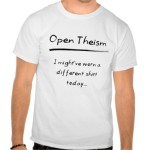We run our website the way we wished the whole internet worked: we provide high quality original content with no ads. We are funded solely by your direct support. Please consider supporting this project.
What is the significance of Hosea 11:8–9?
After plotting severe judgment against Israel (vs. 5–7) the Lord says,
“My heart recoils within me;
my compassion grows warm and tender.
I will not execute my fierce anger…
I will not come in wrath.”
This passage shows that God experiences conflict between his compassion and his justice and that he sometimes alters his plans (his heart “recoils”) as a result (cf. 1 Chron. 21:11–15; Ezek. 20:5–22). He is a personal God who sometimes experiences conflicting emotions as he participates in the ups and downs of life with his people. Only a preconceived, philosophical ideal of what God is “supposed” to be like would ever suggest that this tender portrayal is one of weakness. In truth, God’s responsiveness is a demonstration of his strength.
Category: Q&A
Tags: Open Theism, Q&A
Topics: Open Theism
Verse: Hosea 11
Related Reading

What is the significance of Jeremiah 36:1-6
The Lord has Jeremiah write his prophecy on a scroll, telling him, “Perhaps when the people of Judah hear about every disaster I plan to inflict on them, they will each turn from their wicked ways; then I will forgive their wickedness and their sin” (Jer. 36:3). Jeremiah then tells his scribe to take the…

How do you respond to Matthew 21:1–5?
Jesus commanded his disciples, “Go into the village ahead of you, and immediately you will find a donkey tied, and a colt with her; untie them and bring them to me. If anyone says anything to you, just say this: ‘The Lord needs them.’ And he will send them immediately” (vs. 1-4). Though this verse…

Why Can’t God? Reflections on the Oord Interview (podcast)
Greg reflects on his interview with Thomas Jay Oord. Episode 503 http://traffic.libsyn.com/askgregboyd/Episode_0503.mp3

What is the significance of Genesis 6:5–6?
Seeing the wickedness of the whole human race which preceded the great flood, the Bible says, “The Lord was sorry that he made humankind on the earth, and it grieved him to his heart.” If everything about world history was exhaustively settled and known by God as such before he created the world, God had…

15 Reasons Open Theism is TRUE (a reply to Andrew Wilson)
Article by Dan Kent Recently, Andrew Wilson shared an impressive critique of open theism called: “Responding To Open Theism In Fourteen Words.” Andrew’s article didn’t persuade me, but it did challenge me (seriously!). Below I will respond to each of the words Andrew presents. But first I will add one word of my own (if…

